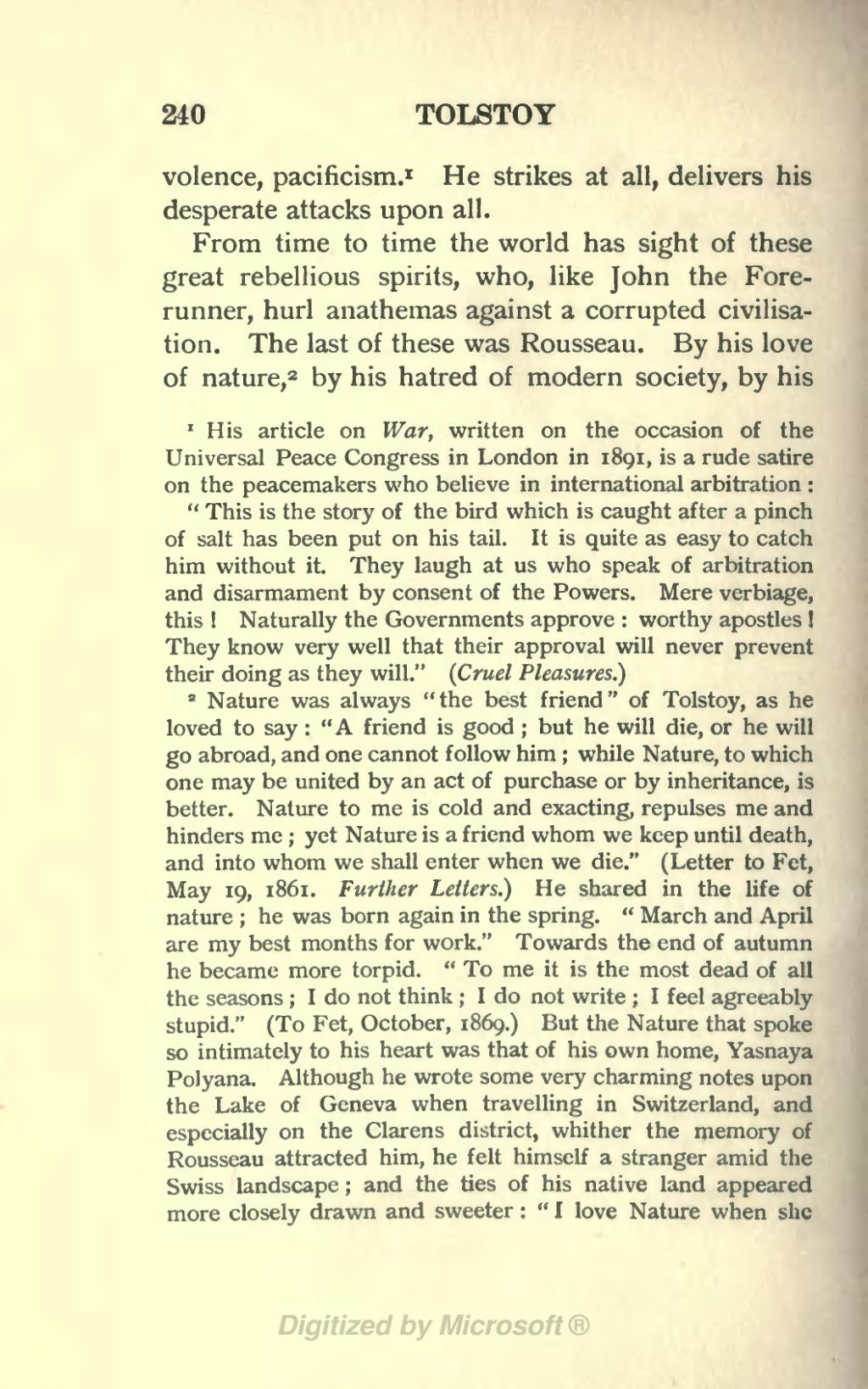This page has been validated.
240
TOLSTOY
volence, pacificism.[1] He strikes at all, delivers his desperate attacks upon all.
From time to time the world has sight of these great rebellious spirits, who, like John the Forerunner, hurl anathemas against a corrupted civilisation. The last of these was Rousseau. By his love of nature,[2] by his hatred of modern society, by his
- ↑ His article on War, written on the occasion of the Universal Peace Congress in London in 1891, is a rude satire on the peacemakers who believe in international arbitration:
“This is the story of the bird which is caught after a pinch of salt has been put on his tail. It is quite as easy to catch him without it. They laugh at us who speak of arbitration and disarmament by consent of the Powers. Mere verbiage, this! Naturally the Governments approve: worthy apostles! They know very well that their approval will never prevent their doing as they will.” (Cruel Pleasures.)
- ↑ Nature was always “the best friend” of Tolstoy, as he loved to say: “A friend is good; but he will die, or he will go abroad, and one cannot follow him; while Nature, to which one may be united by an act of purchase or by inheritance, is better. Nature to me is cold and exacting, repulses me and hinders me; yet Nature is a friend whom we keep until death, and into whom we shall enter when we die.” (Letter to Fet, May 19, 1861. Further Letters.) He shared in the life of nature; he was born again in the spring. “March and April are my best months for work.” Towards the end of autumn he became more torpid. “To me it is the most dead of all the seasons; I do not think; I do not write; I feel agreeably stupid.” (To Fet, October, 1869.) But the Nature that spoke so intimately to his heart was that of his own home, Yasnaya Polyana. Although he wrote some very charming notes upon the Lake of Geneva when travelling in Switzerland, and especially on the Clarens district, whither the memory of Rousseau attracted him, he felt himself a stranger amid the Swiss landscape; and the ties of his native land appeared more closely drawn and sweeter: “I love Nature when she
